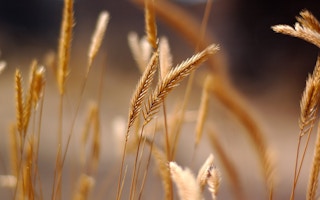An agreement aimed at easing global food price rises by enabling Ukraine to export grain from its Black Sea ports expired this week after Russia said it will suspend its participation.
The United Nations and Turkey brokered the initiative last year to help ease a global food crisis worsened by Moscow’s invasion of Ukraine and blockade of its Black Sea ports.
Aid groups warned its collapse will push up costs of staples, increasing the risk of hunger and starvation among vulnerable households.
Here are the details:
What is the Black Sea grain deal and why does it matter?
The Black Sea Grain Initiative is an agreement between Russia and Ukraine to allow for the safe passage of ships carrying grains, fertiliser and vegetable oil from ports in war-hit Ukraine to other countries.
Russia’s invasion of Ukraine in February last year disrupted agricultural production and exports, fuelling global shortages of essential commodities such as wheat, corn, edible oils and fertilisers.
This resulted in a rise in world food prices and increased the risk of starvation in countries already struggling with food shortages such as Somalia and Yemen, bringing accusations from the United States that Russia was weaponising food supplies.
Russia and Ukraine are both grain exporting powerhouses that accounted for 24 per cent of global wheat exports by trade value, 57 per cent of sunflower seed oil exports and 14 per cent of corn from 2016 to 2020, shows data from UN Comtrade.
Ukraine is also a major source of wheat for the United Nations World Food Programme (WFP), which provides food assistance to 115.5 million people in more than 120 countries.
What has the Black Sea gain deal achieved?
The deal helped bring down global food prices, which reached record highs shortly before the deal, according to the United Nations.
Nearly 33 million metric tons of food has been exported from Ukraine to 45 countries under the deal, according to the UN’s Black Sea Grain Initiative Joint Coordination Center (JCC), with the majority going to developing countries.
The initiative also allowed the WFP to transport more than 725,000 tons of wheat to people in need in Afghanistan, Ethiopia, Kenya, Somalia, Sudan, and Yemen.










